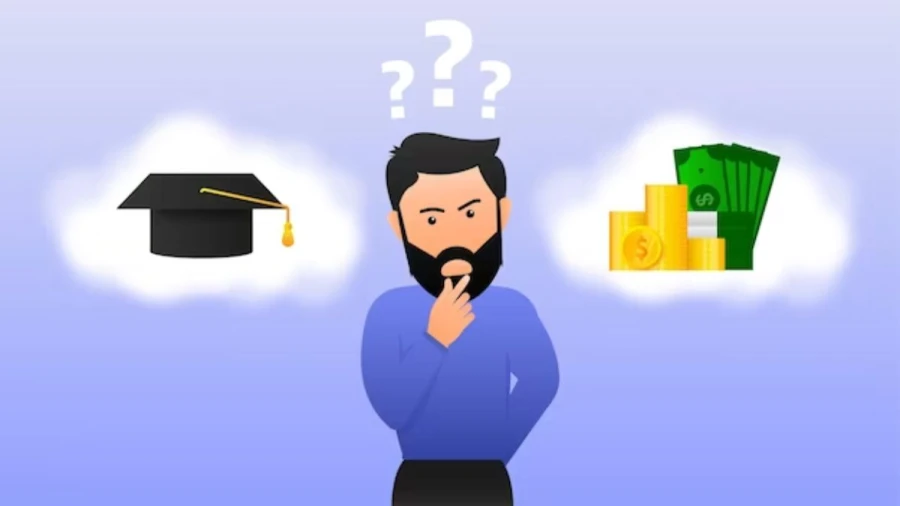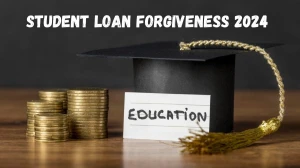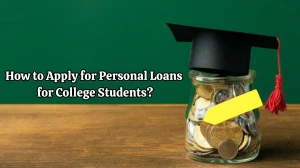
What Happens if I Am Not Able to Pay My Education Loan?
If you are unable to pay your education loan, your debt becomes delinquent after 90 days, impacting your credit score and after 270 days, the loan enters default, leading to potential legal actions and transfer to a collection agency.
Published Aug 09, 2023 | Updated Dec 28, 2023 | 📖 6 min read
What Happens if I Am Not Able to Pay My Education Loan?
Ignoring your student loan debt can lead to severe consequences, with effects similar to defaulting on a credit card. If you fail to pay within 90 days, the debt is classified as delinquent, negatively impacting your credit score.
After 270 days, it officially enters default, and the loan may be transferred to a collection agency, bringing potential credit denials and higher interest rates. However, the worst-case scenario involves legal action, as seen in extreme cases where U.S. marshals were involved in collecting a long-overdue student loan.
Student Loan Debt Overview
As of 2023 Q1, outstanding student loan debt in the United States totals $1.77 trillion, making it a significant financial concern for many Americans.
Consequences of Ignoring Student Loan Debt
Ignoring student loan debt has severe consequences similar to defaulting on a credit card. Failing to pay within 90 days classifies the debt as delinquent, negatively affecting your credit rating. After 270 days, the loan enters default and may be transferred to a collection agency.
Credit Consequences and Default
When your loan payment is 90 days overdue, it is officially delinquent, impacting your credit rating. This can lead to credit denials or higher interest rates on new applications. At 270 days overdue, the loan is in default, and the account may be transferred to a collection agency.
Avoiding Default with Federal Programs
To avoid default, act before your loan is 270 days overdue. Federal programs like Income-Based Repayment (IBR), Pay As You Earn (PAYE), and Saving on a Valuable Education (SAVE) can reduce payments based on income and family size. These programs offer potential government contributions to interest and debt forgiveness after consistent payments.
Credit Score Improvement through Timely Payments
Keeping up with student loan payments, especially through federal programs, can improve your credit score. A positive credit history is crucial for securing future loans, such as car loans or home mortgages.
Worst-Case Scenario and Legal Consequences
In extreme cases, ignoring student loan debt can lead to legal action. U.S. marshals may be involved in collecting long-overdue loans, as seen in situations where individuals refuse court appearances after being sued by the government.
Can Education Loan Be Cancelled?
Yes, education loans can be canceled under specific circumstances. Before the loan is disbursed, you have the right to cancel all or part of it by informing your school. Additionally, the Biden-Harris Administration proposed a student debt relief plan, aiming to cancel up to $20,000 in federal student loans, but it was ruled against by the Supreme Court on June 30, 2023.
While interest and payments on federal student loans were paused due to the COVID-19 pandemic, interest will resume accruing on Sept. 1, 2023, and payments will restart in October 2023. Consider other options for student loan relief in light of these changes.
How to Cancel Student Loan Debt?
Canceling student loan debt involves exploring forgiveness and discharge options based on your loan type. Stay informed about the changing landscape of student loan relief, especially considering recent developments and the expiration of pandemic-related measures.
Stay informed about the changing landscape of student loan relief, especially considering recent developments and the expiration of pandemic-related measures. The Supreme Court's decision halted President Biden's relief plan, but other programs offer potential relief:
Student Loan Forgiveness
Programs like Public Service Loan Forgiveness, Teacher Loan Forgiveness, and Perkins Loan Cancellation may forgive part or all of your federal student loan debt based on specific criteria.
Student Loan Discharge
Discharge options include closed school discharge, borrower defense loan discharge, false certification discharge, unpaid refund discharge, forgery loan discharge, total and permanent disability discharge, Perkins Loan discharge, discharge in bankruptcy, and discharge due to death.
Income-Driven Repayment (IDR)
If you don't qualify for forgiveness or discharge, consider enrolling in an IDR plan, where payments are based on your income and household size, potentially reducing payments to 10-20% of discretionary income.
What if Student Loan Repayment is Too High?
When faced with challenges in repaying your student loans, exploring alternative options is crucial. Consider transitioning to an income-driven repayment plan, contacting your loan servicer for possible modifications, or exploring deferment or forbearance options. Acting promptly and engaging with your loan servicer can help alleviate financial strain and find a suitable solution.
Income-Driven Repayment Plan
Switching to a plan based on your income and family size can potentially lower your monthly payments.
Contact Your Loan Servicer
Reach out to your loan servicer, explain your situation, and explore options such as modifying your repayment schedule or postponing payments until you find a job.
Deferment or Forbearance
For federal student loans, you might qualify for deferment or forbearance, offering temporary relief from payments. Keep in mind that these options may come with downsides, like accruing interest on your loan.
What Are the Pros and Cons of Education Loans?
Education loans play a pivotal role in making higher education accessible, providing individuals with the financial means to pursue their academic aspirations. While they offer a pathway to knowledge and career opportunities, education loans come with a set of advantages and disadvantages. Understanding the pros and cons is crucial for individuals navigating the financial landscape of educational financing.
Pros of Education Loans
- Education loans provide financial support, enabling individuals to pursue higher education and skill development that might otherwise be financially challenging.
- By facilitating education, these loans are seen as an investment in one's future, potentially opening doors to better career opportunities and increased earning potential.
- Many education loans offer flexible repayment plans, allowing borrowers to tailor their payment schedules based on income and financial circumstances.
- Successfully managing and repaying an education loan can contribute positively to an individual's credit history, which is beneficial for future financial endeavors.
- In some regions, borrowers may be eligible for tax benefits on the interest paid on education loans, providing a financial incentive.
Cons of Education Loans
- Interest accumulation during the education period and repayment term can significantly increase the overall amount repaid, potentially causing financial strain.
- Graduates often enter the workforce with student loan debt, creating a financial burden that may take years to repay, impacting other life decisions like buying a home or starting a family.
- The ability to repay education loans is linked to securing a well-paying job, and economic uncertainties can pose challenges in meeting repayment obligations.
- Failure to repay education loans on time or defaulting can have a negative impact on the borrower's credit score, affecting their ability to access credit in the future.
- Some education loans have stringent terms and conditions, offering limited flexibility in terms of repayment options, interest rates, and eligibility criteria.
What Happens if I Am Not Able to Pay My Education Loan-FAQs
1. What happens if I can't make the payments on my education loan?
If you're unable to make your education loan payments, it's crucial to contact your loan servicer immediately. They can help you explore options such as deferment, forbearance, or income-driven repayment plans to temporarily lower or pause payments.
2. Can I default on my education loan?
Yes, if you consistently fail to make payments as agreed, your loan can go into default. Defaulting can have serious consequences, including damage to your credit score, potential legal actions, and wage garnishment.
3. What is loan deferment or forbearance?
Deferment and forbearance are options that allow you to temporarily pause or reduce your loan payments if you're facing financial hardship or specific circumstances, such as going back to school or experiencing unemployment. Interest may still accrue during this period.
4. Are there consequences for defaulting on my education loan?
Defaulting on your education loan can have severe repercussions, including a negative impact on your credit score, wage garnishment, loss of tax refunds, and legal actions taken by the loan holder or government agencies.
5. Can I negotiate with my loan servicer if I'm struggling to make payments?
Yes, you can contact your loan servicer to discuss your situation. They may be able to help you find a suitable repayment plan, adjust your monthly payments based on your income, or provide guidance on available assistance programs.




